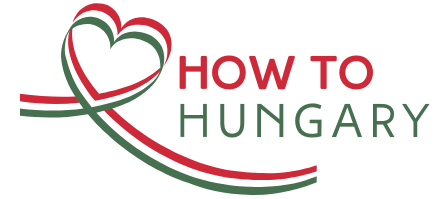If you’ve ever wondered how to connect with your Hungarian roots and gain Hungarian citizenship through your family history, you’re in the right place. I’m writing this near Lake Balaton on a grey morning, watching the clouds shift and thinking about how my own family papers brought me back here.
I was born in Canada but I’ve lived in Hungary since 2017. My husband and I packed up our life and moved here, and today I hold Hungarian citizenship thanks to my father, who spent the first third of his life in Budapest before starting over in North America. My mother’s story was less tidy – she was born in a refugee camp on the Austrian border, so her records were harder to trace. In the end, my father’s paperwork made it possible to claim my citizenship.
In this post, I’ll share everything you need to know about obtaining Hungarian citizenship by descent, sometimes called “citizenship by blood,” so you can decide if you qualify and how to get started. I’ll walk you through what to check, where to find what you need, and how to start turning family facts into an official status you can actually use. If you’re thinking about it, know that I’m sitting here proof that it’s possible.
What Is Hungarian Citizenship by Blood?
Hungarian citizenship law operates primarily on the principle of jus sanguinis, or “right of blood.” This means that citizenship is passed down through Hungarian ancestors rather than by place of birth. If you have Hungarian parents, grandparents, or even great-grandparents, you might be eligible to claim Hungarian citizenship.
Unlike some countries that limit citizenship by descent to just one or two generations, Hungary is relatively generous. There is no strict generational limit, but you must be able to prove your family ties with official documents.
Who Qualifies for Hungarian Citizenship by Descent?
You can apply for Hungarian citizenship by descent if you can prove that at least one of your ancestors was a Hungarian citizen. This usually means:
-
Your parent was a Hungarian citizen.
-
Your grandparent was a Hungarian citizen.
-
Even your great-grandparent might qualify, provided you have the necessary documentation.
One important note: Hungarian citizenship laws have evolved over time. For example, women who married non-Hungarian men before 1957 often lost their citizenship, which can complicate lineage claims.
In my case, my father’s Hungarian citizenship was well-documented since he lived in Budapest for a third of his life. My mother’s background was more complicated because she was born in a refugee camp on the Austrian border after World War II, which made gathering documents more challenging. But both paths are possible with patience and the right resources.
What Documents Do You Need?
Documentation is the backbone of your citizenship application. Here’s a list of the most common documents you’ll need:
-
Your birth certificate (official, long-form copy).
-
Birth certificates of your Hungarian ancestor(s) (parents, grandparents, etc.).
-
Marriage certificates (if applicable, to establish name changes or family connections).
-
Proof of Hungarian citizenship of your ancestor, such as:
-
Hungarian passport or identity card.
-
Hungarian citizenship certificate.
-
Military records or other official documents proving citizenship.
-
-
Other supporting documents that may be required:
-
Naturalization records if your ancestor became a citizen of another country.
-
Name change documents if family names changed due to marriage or other reasons.
-
If your ancestors lived abroad or in refugee camps, gathering these documents may take time. In some cases, local archives in Hungary or the country where your ancestor lived can help. Patience and persistence are key!
The Application Process
Here’s a step-by-step overview of how to apply for Hungarian citizenship by descent:
- Find your local Hungarian consulate or embassy. Applications must be submitted in person at a consulate or embassy; walk-ins and mail-in applications are not accepted.
- Book an appointment. Consulates often require appointments well in advance.
- Prepare your documents. Make sure everything is official, translated into Hungarian if necessary, and certified.
- Attend your appointment. Submit your application and documents. You may be asked some questions but there is typically no formal interview.
- Wait for processing. Processing times vary but expect several months.
Good news: Hungarian language proficiency is not required when applying for citizenship by descent, which makes the process more accessible.
Where to Get Help
Navigating the citizenship process can be daunting, but you don’t have to do it alone. Here are some excellent resources:
-
Hungarian Consulates and Embassies: They provide official information and handle your application. You can find your nearest consulate on the official Hungarian Ministry of Foreign Affairs website.
-
Immigration Journey in Hungary Facebook Group: This community is a fantastic resource where people share tips, experiences, and advice about obtaining Hungarian citizenship. It’s especially helpful for troubleshooting document issues.
-
My ebook, How to Hungary: With 75 expert reviewed chapters covering everything from immigration to healthcare, driving rules, and even fishing licenses, it includes detailed guidance on life in Hungary and much more.
Frequently Asked Questions
Q: Do I need to speak Hungarian to get citizenship by descent?
A: No, language proficiency is not required for citizenship by descent.
Q: What if my ancestor’s documents are missing or incomplete?
A: Missing documents can complicate the process, but you can sometimes use alternative documents or seek help from archives and community groups.
Q: How long does the citizenship process take?
A: It varies by consulate and case complexity, but expect several months to a year.
Q: What are the benefits of Hungarian citizenship?
A: Besides the pride of reclaiming your heritage, Hungarian citizenship grants you EU citizenship, allowing you to live, work, and travel freely across the European Union.
Ways to Acquire Hungarian Citizenship
When exploring your Hungarian roots, it’s important to understand that Hungary offers several paths to citizenship. Here’s a clear breakdown of the main options:
This is the most common route for those with Hungarian ancestry. If at least one of your parents was a Hungarian citizen at the time of your birth, you may be eligible to acquire citizenship by descent. This process typically involves:
- Proving direct lineage to a Hungarian citizen parent.
- Submitting relevant documents, such as birth and marriage certificates.
- Demonstrating that citizenship was passed down according to Hungarian law at the time of your birth.
A related but distinct path is known as citizenship verification or citizenship confirmation. This process is designed for individuals who may already be Hungarian citizens by birthright, but whose citizenship was never formally recognised or documented. Key points include:
- It applies to those born to Hungarian parents, even if citizenship was not officially registered at birth.
- The process confirms citizenship that exists by law, regardless of where you were born or how many generations have passed.
- Applicants must provide solid proof of Hungarian ancestry, but the legal and procedural requirements differ from the citizenship by descent route.
This is a separate route for people who do not qualify through descent or verification but have other ties to Hungary. Important details include:
- It requires passing a Hungarian language test at a conversational level.
- Applicants usually need to demonstrate a connection to Hungary, such as residence, family ties, or cultural links.
- This process is more involved and includes submitting a handwritten statement in Hungarian explaining your ties to the country.
- Unlike the other two routes, simplified naturalization grants citizenship based on current ties rather than ancestry alone.
All three pathways require documentation and proof of eligibility, but the legal details and procedures differ. I’ll be writing future posts to explore each route in more detail, including tips on preparing your application.
For now, if you’re exploring your Hungarian heritage or connections, it’s good to know there are multiple options depending on your family history and personal circumstances.

A pink, slightly chaotic Christmas in my living room, 2021 – proof that the paperwork works. From Canada back to Hungary: me, my parents, and my sister. Heritage in real life.
Encouragement
Obtaining Hungarian citizenship by descent isn’t just paperwork. It’s a way to pull old family threads forward and see where they lead you. For me, it brought not just my husband and me, but my parents and sister too – the original Hungarians, now all living under these same skies again.
If your family tree points you this way, don’t leave it for someday. Dig up the documents, ask the questions, and speak to the consulate or trusted community groups. You never know how far a single piece of paper might carry you.
If you’d like more real details about life here – what works, what surprises you, and what no one warns you about – my How to Hungary comprehensive guide is waiting for you. It’s full of lessons, links, and stories from my own journey to help you find your feet faster than I did.
Wherever you are in this process, I’m cheering you on. Your roots are closer than you think.
Useful link: Hungarian Citizenship Information – Hungarian Consulate Los Angeles
If you found this post helpful, please share it with others who might benefit. And if you have questions or want to share your own citizenship story, feel free to leave a comment below!

Anikó Woods is a Canadian-Hungarian writer, technology specialist, and digital strategist who swapped Toronto traffic for Hungarian bureaucracy. She’s the creator of HOW TO HUNGARY: Budapest & Beyond. Since moving to Hungary in 2017, she’s been deep in the paperwork trenches – fact-checking, interviewing experts, and helping others make sense of the madness. Her writing turns chaos into clarity, with a few laughs (and wine recommendations) along the way.

0 Comments